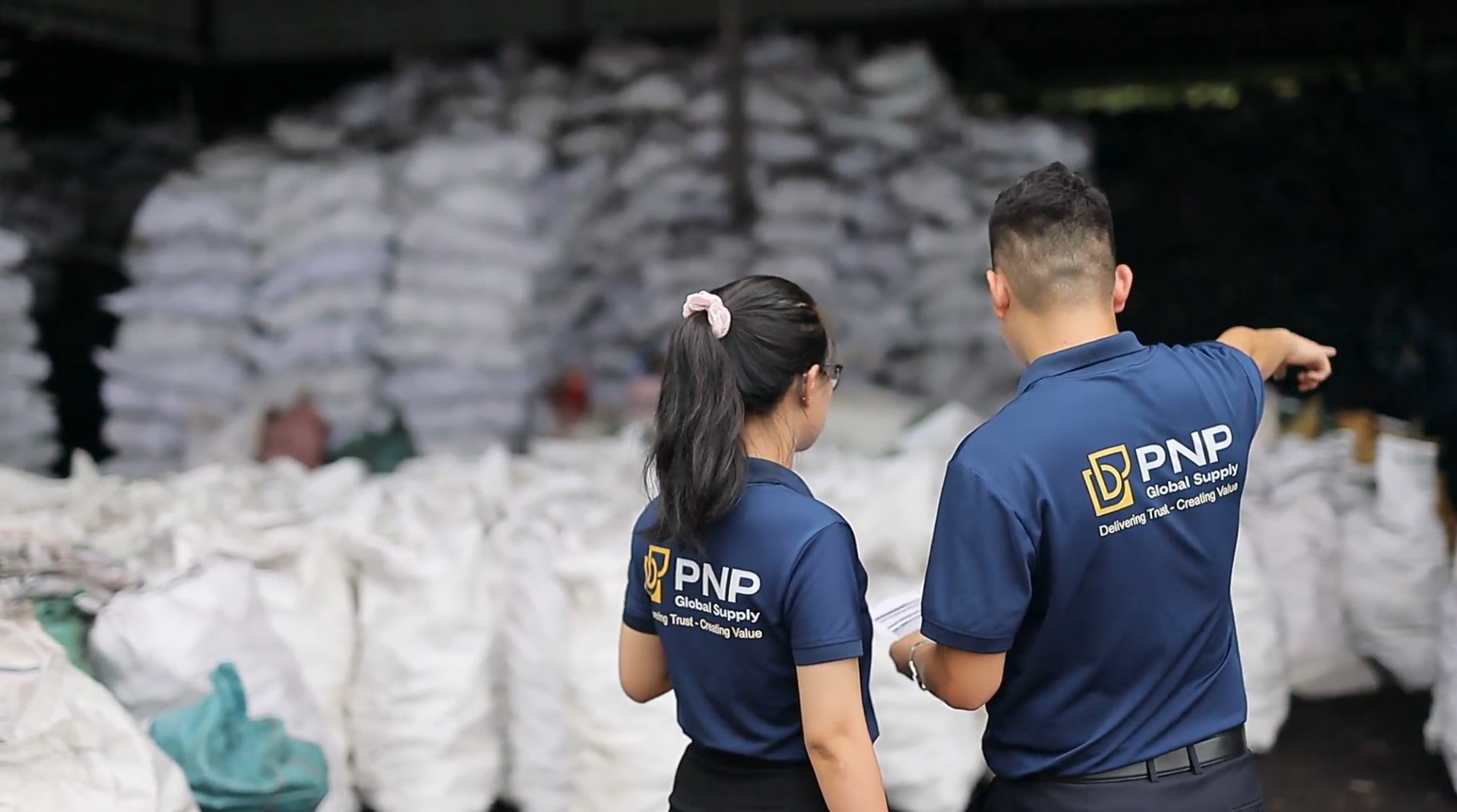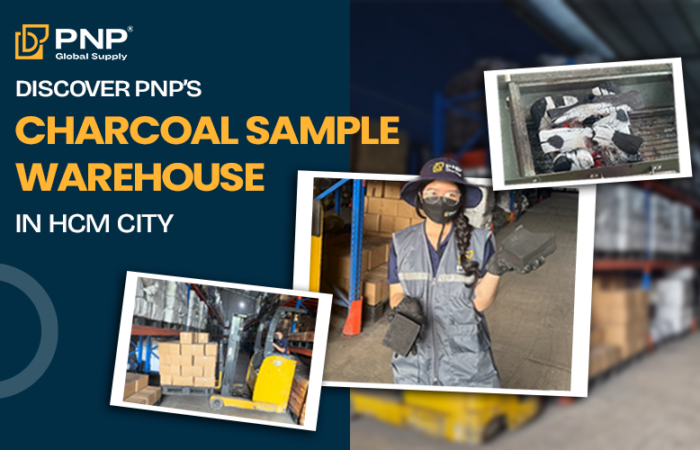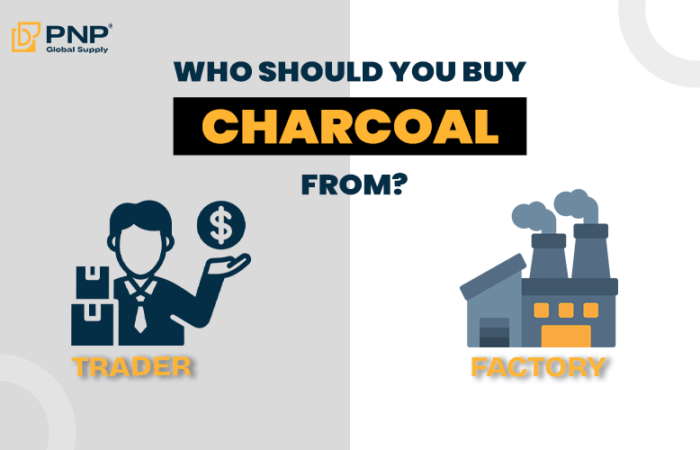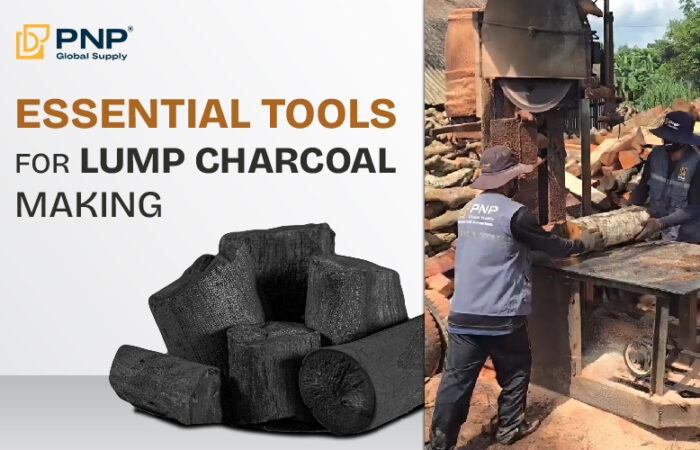When importing or buying charcoal for export, understanding the charcoal specification is one of the most important steps. This document does more than describe numbers; it tells the story of how the charcoal will perform in real-life use. Whether you are working with a charcoal supplier in Vietnam or any other country, knowing how to interpret these specifications helps you make the right purchasing decision.
Vietnam has become one of the world’s most trusted sources for high-quality charcoal. Vietnamese charcoal is well-known for its clean burning, long-lasting heat, and consistency, making it a popular choice among BBQ and industrial users worldwide.

What Is Charcoal Specification?
A charcoal specification is a detailed description of a product’s physical and chemical characteristics. It helps buyers and suppliers speak the same language about quality. You can think of it as a “charcoal profile” that shows exactly how it performs — how hot it burns, how much ash it leaves, or how long it lasts.
When you contact a charcoal supplier, they will often send a technical sheet listing values such as Fixed Carbon, Moisture Content, Ash Content, Volatile Matter, and Calorific Value. These figures help you determine if the charcoal meets your needs, whether for grilling, heating, or export purposes.
The Key Parameters You Should Know
Each charcoal specification includes several key parameters that define its performance. Understanding them allows you to compare products and make confident choices.
Moisture Content
This shows how much water remains in the charcoal. The lower the moisture, the faster and cleaner it burns. Good-quality Vietnamese charcoal usually has less than 5% moisture.
Ash Content
Ash is what remains after burning. Low ash means cleaner cooking and less residue to clean up. For BBQ charcoal, an ash content below 7% is considered ideal.
Fixed Carbon
This is the most important value. It determines how much energy the charcoal can produce. A higher fixed carbon percentage means stronger heat and longer burning time, which is perfect for restaurants or professional grilling.
Volatile Matter
This factor influences how easily the charcoal ignites and how much smoke it releases. Balanced volatile matter makes the charcoal easy to light while still burning steadily.
Calorific Value
The calorific value measures the total energy the charcoal produces, expressed in kcal per kilogram. Premium charcoal for export often reaches above 6500 kcal/kg, showing excellent heat performance.
Shape and Size
The physical form also matters. Charcoal can come as lump, stick, or briquette. Uniform pieces burn more evenly, which is especially important for restaurant or export packaging standards.
By paying attention to these indicators, you can understand the real performance behind every bag of charcoal.

How to Understand Charcoal Testing Reports
Most professional exporters provide charcoal testing reports from accredited laboratories. These reports confirm that the data in the specification sheet is accurate. They show results for moisture, ash, fixed carbon, volatile matter, and calorific value, following international standards like ISO or ASTM.
When reading a testing report, check that the numbers meet your market’s requirements. For example, BBQ charcoal in Europe often needs lower ash and smoke levels, while heating charcoal for industrial use might focus more on calorific value.
If the results do not match your expectations, contact your charcoal supplier immediately for clarification or request a re-test. Reliable suppliers will be transparent and willing to share detailed information about their production and quality control.
At PNP Charcoal, every batch of Vietnamese charcoal is tested before shipment. This ensures that customers always receive consistent quality and accurate specifications for every container exported.
Comparing Specifications Between Suppliers
Charcoal quality can vary even within the same region. When comparing different charcoal suppliers, take the time to review their specification sheets side by side.
For example, charcoal factories in Bình Phước or Bến Tre often produce mangrove and coffee charcoal with higher fixed carbon and lower ash content compared to other sources. These characteristics make Vietnamese products more efficient and cleaner when burned.
To make an informed comparison, focus on the most essential figures: fixed carbon above 65%, ash content below 7%, and moisture under 5%. These values represent high-grade charcoal that performs well for export and professional grilling.
How Specification Affects Charcoal Price
The relationship between charcoal specification and charcoal price is straightforward. Higher quality means higher cost, but it also means better performance and customer satisfaction.
Charcoal with a high fixed carbon content burns hotter and lasts longer, which naturally makes it more valuable. Low ash and low moisture levels improve cleanliness and efficiency, increasing the price slightly but offering far better results.
For importers, it’s not always necessary to choose the most expensive option. The best choice is the one that fits your purpose. By understanding specifications, you can balance cost and performance, ensuring good value for your investment.
If you want to learn more about charcoal prices, check out our next article for a detailed guide: Charcoal price per ton in 2025: What global buyers should know
Tips for Choosing the Right Charcoal Supplier
Once you understand how to read the specifications, the next step is finding a trustworthy charcoal supplier. Here are a few practical tips for buyers who want to make smart sourcing decisions.
First, always ask for a laboratory charcoal testing report or certification to verify quality. Second, request product samples so you can test the charcoal’s burning time and temperature yourself. Third, check the supplier’s export experience. A reliable charcoal factory will already be familiar with export documentation and quality requirements for markets like the EU, the Middle East, or Japan.
If possible, visit the factory in person. Many Vietnamese charcoal producers are open to inspections and welcome international buyers to see their process firsthand. This transparency helps build trust and ensures you are partnering with a credible source.
Why Vietnamese Charcoal Is a Smart Choice
Vietnamese charcoal has earned a solid reputation in global markets for its clean combustion, steady heat, and environmentally responsible production methods. Factories in Vietnam often use natural hardwoods such as mangrove, coffee wood, or eucalyptus, which produce strong heat and minimal smoke.
These characteristics, combined with consistent charcoal specifications, make Vietnam a top destination for importers seeking quality at a competitive charcoal price. Many international buyers choose to buy charcoal from Vietnamese exporters because of their reliability, transparent testing, and long-term supply stability.
PNP Charcoal provides high-quality Vietnamese charcoal ideal for restaurants, BBQ businesses, and industrial use. Visit our website: PNP Charcoal to explore premium charcoal options that deliver strong heat, long burn time, and clean performance.

Conclusion
Learning how to read a charcoal specification is a vital skill for anyone in the charcoal trade. It helps you understand what you are buying, compare suppliers with confidence, and ensure that each shipment meets your expectations.
Before making a purchase, always request both the technical specification and a recent charcoal testing report. These documents will give you a complete picture of the product’s quality and performance.
If you’re planning to buy charcoal from a trusted charcoal supplier, consider working with Vietnamese producers. Their professional charcoal factories, consistent quality, and competitive pricing make them a dependable choice for long-term business.
Whether you are sourcing BBQ charcoal for restaurants or charcoal for export to new markets, understanding specifications is your best tool for success.
________________________________
Contact us for more information
Facebook: PNP Charcoal
Instagram: PNP Charcoal
Email: info@pnpglobalsupply.com




